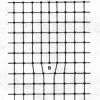Epidemiological study, so take with a grain of salt... gingko consumption correlates with longer life in elderly French folks:
http://www.ergo-log.com/ginkgo4.html
Ginkgo prolongs life
If elderly people took ginkgo daily their chances of death would decrease, researchers from the French Université de Bordeaux found when they followed a group of 3500 elderly people for a period of 13 years. The researchers were looking for the effects of medication against dementia.
So they tested 3534 elderly people in south-west France from 1988 to the beginning of the 21st century. Of these, 225 used ginkgo, and 888 used medication to slow down the decline of mental abilities. The researchers found that those who used medication as well as ginkgo were slightly more likely to have dementia then those not using anything.
That does not mean that the elderly people were suffering from dementia because they were using these substances. It was the other way around: because these elderly people were suffering from symptoms of deterioration of their mental abilities, they used medication more often.
The table above shows the chances of dementia, the 95 percent confidence interval and the P-Value in the three groups. We will spare you the statistical mumbo-jumbo, but the results are not very shocking.
However the effect of ginkgo on the chance of death is spectacular. The chance of ginkgo users dying in the 13 years of the study was 46 percent. The chance of users of medication against dementia dying in those 13 years was 62 percent. For non-users the chance of death was 50 percent.
Edited by blood, 17 May 2013 - 12:00 AM.




















































